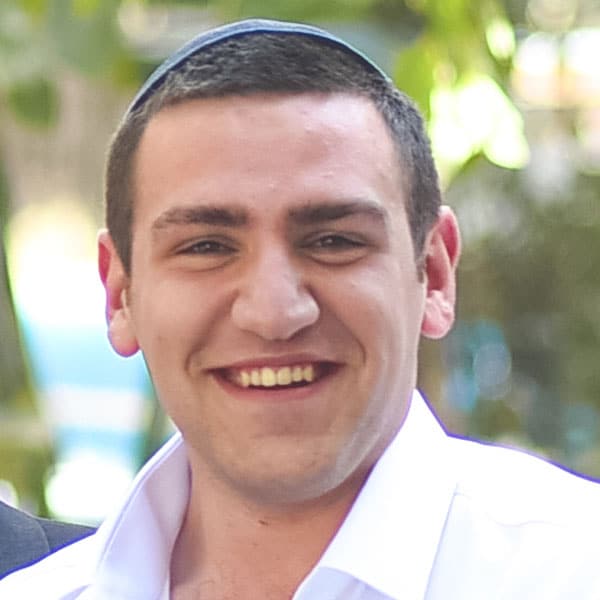 Photo courtesy of Doni Cohen.
Photo courtesy of Doni Cohen. By the rivers of Babylon, there we sat and wept, as we remembered Zion.
This year, we sit on the curbs of our sidewalks, on the streets of our land, instead of on the floors of our synagogues, as we remember Zion. Every year the same question is asked: How can we continue to speak of the desolate Land of Israel, the destruction of our nation and the downtrodden state of our people when we sit not on the banks of the rivers of Babylon, but on the boulevards, which stand as a testament to the first flowerings of our impending redemption?
Of course, the Temple has yet to be built. There are many problems that still plague our nation and unfortunately many are suffering, but has our hope — which now serves as the very anthem of our reestablished country — ever been stronger? Are such lamentations, originally written from an exile devoid of any light on the horizon not a slap in the face of our maker? Have we no appreciation for how far we have come, how fortunate we have been, how many open miracles our generation has witnessed?
It seems that this year’s events, perhaps more than any others in recent history, answers this question that only our generation is fortunate enough to consider asking on the fast of the Ninth of Av.
It seems that this year’s events, perhaps more than any others in recent history, answers this recent question that only our generation is fortunate enough to consider asking on the fast of the Ninth of Av.
Perhaps this year, when our perception has been anything but clear, can help answer this question. Perhaps a year in which we realize just how little we truly understand, will help bring us a heightened sense of humility. Perhaps a year in which our collective ego has been utterly humiliated will shake us from our narcissism.
As this seemingly interminable period drags on, we are compelled to repeatedly acknowledge our inabilities and admit that no matter what means we may have at our disposal, our jurisdiction in this world is limited by The One above.
This year, when we have come to appreciate more than ever the “butterfly effect” of a touch, a sneeze, or even a lone breath, we should understand Tisha b’Av with clarity. Yes, we mourn the destruction of our ancient Temples, as well as commemorate the myriad of tragedies that have befallen our nation over the last two millennia. However, Tisha b’Av is not just about mourning what we lost, it’s about lamenting our lack of clarity in understanding what we lost. The physical infrastructure we grieve for must be accompanied by the anguish caused by the destruction of our spiritual acumen.
Tisha B’Av is not just about mourning what we lost, it’s also about lamenting our lack of clarity in understanding what we lost.
In a year when we learned the effect that one breath can have on the world, we can certainly attempt to perceive the effect that the presence of the great Temples once had on this world. In a year in which only the blind can emerge with their vainglory intact, how much more so is it upon us to acknowledge that we are so close yet so very far.
What more should we require beyond the forced memorialization on our sidewalks of the extirpation of our Temples, in light of the temporary closure of our synagogues?
Every year, Tisha b’Av poses a paradoxical challenge: It is a day when we are commanded to attempt to grasp what we lack, despite the knowledge that such a mission is impossible.
Why does The Almighty command us to annually attempt the impossible?
Perhaps that is precisely our mission. Perhaps our mission is not to understand, but to attempt to understand how much we simply cannot understand.
And what time period, in recent history, has been more appropriate for us to assume such a mission?
Doni Cohen is a 25-year-old student currently studying political science and Jewish history at the Hebrew University of Jerusalem. He made aliyah from Bergenfield, N.J. in 2013. He can be reached at arbel67@gmail.com.























 More news and opinions than at a Shabbat dinner, right in your inbox.
More news and opinions than at a Shabbat dinner, right in your inbox.